In my post on 30 June I wrote about the Warwick Pageant, an extravaganza that took over the town of Warwick for a week in July 1906. It had taken months of planning, costume-making, and rehearsing, and around 1500 people appeared in the pageant.
As I mentioned in the post, the young Shakespeare was a key figure in the pageant, appearing in the episode showing Queen Elizabeth’s visit to Kenilworth, and rounding off the whole performance. In the official programme, which kept all the performers anonymous, the player of this role is listed as “A boy from Stratford”. I was intrigued: who was this boy “of eight summers”?
I went to the Shakespeare Centre Library and Archive to look up records of the pageant, and I found a collection of items that had belonged to Mrs Flower (of the Stratford brewing family). She had asked for a list of the Stratford people participating in the pageant, and the handwritten list is tipped in to the programme. The writer was Mr G W Everard, who I mentioned in my previous post, was himself a Stratford man, playing John Shakespeare. Among the items was a photograph of Mr Everard with the boy Shakespeare, on the back a pencilled note: M Bland. Who was he? He wasn’t listed among the pupils at KES, and although the archivist at Warwick School came up with the delightful fact that ALL the boys at Warwick School took part in the pageant, he was unable to help. I checked the Stratford Herald’s report of the Pageant. Referring to the boy Shakespeare it noted “Little Master Gordon Bland takes this part exceedingly well”. Stratfordians named Bland were few and far between, and as he didn’t appear on Mr Everard’s carefully-compiled list, maybe he wasn’t from Stratford at all?
I tried using online resources. The free Births Marriages and Deaths Online index found Malcolm Gordon Bland born in the Warwick district in the third quarter of 1898. Census indexes found a Gordon Lyon Bland and his young family living in Leamington, but no child called Malcolm or Gordon.
The British Newspaper Archive’s free search supplies a tantalising line or two of content for each article, enough to show that Gordon Lyon Bland had been a wealthy brewer, part-owner of Lucas & Co. in Leamington. Mayor twice while in his thirties, he died in 1913 aged only 45. The description of the pageant itself names some of the participants, including, in the Kenilworth episode, Mrs Bland, the boy’s mother, a comforting presence for her son. Gordon Lyon Bland’s father James made a fortune in Liverpool importing timber, and built a mansion called Quarry Bank, later converted into a school attended by John Lennon, hence the name of his first group, The Quarrymen. So many distractions…
The 1911 census showed Malcolm Gordon Bland, from Warwickshire, living in Sussex. Was this the same boy, and what was he doing there? Then on a Google search I found a reference to the great public school Charterhouse, and a list of all the boys from the school who were killed in WW1. There was Malcolm Gordon Bland. It was a chilling find, and suddenly I wasn’t sure I wanted “the boy Shakespeare” to be Malcolm Gordon Bland.
To establish the facts I took out a 14-day free trial of Ancestry, and the information flowed. His christening record confirmed the names of his parents. The images of the census returns for 1901 showed the indexes were wrongly transcribed and he was there after all, age 2. The 1911 census showed him at Wellington House in Sussex, a prep school that specialised in training boys to shoot, with one of his brothers and a cousin. And an image of his army record showed that he had been a 2nd Lieutenant in the first battalion of The King’s Royal Rifle Corps, killed on active service on 23 March 1918. The document includes the name and address of his widowed mother who would receive the awful news of his death.
He’s remembered at the Chapel at Charterhouse, in Surrey, one of nearly 700 pupils who died in the Great War, and his name is inscribed on the great Arras Memorial in France.
Malcolm Bland had gone to France in August 1917, just after his 19th birthday. Just a few months later he was killed, probably at the Battle of St Quentin. There are very few records of his life, because it had barely started. He must have been a precocious child, performing in front of thousands at the Pageant at just eight. He had received the best education money could buy, and had he lived would probably have followed his father to university in Cambridge before pursuing a career in one of the professions. But being born into a wealthy, privileged family was no protection in wartime.
His name does not seem to be on any local war memorial, and in the official records of the famous Warwick Pageant he remains anonymous. A few days ago I was sent information about the Royal British Legion’s Every Man Remembered project which aims to ensure that “every single man and woman who fell in the First World War [should be] … remembered by someone alive today.” Participants can return a poppy, with a tribute, which will be planted in Mons, Belgium, on 23 August commemorating 100 years since the first British man of the First World War was killed.
I’m going to be writing my tribute to Malcolm Gordon Bland, who may not have been “a boy from Stratford” but whose short life should still be remembered.

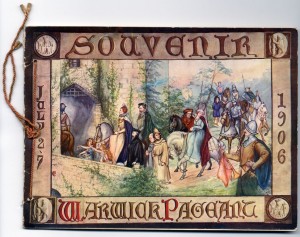
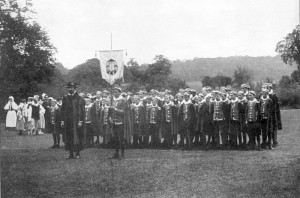
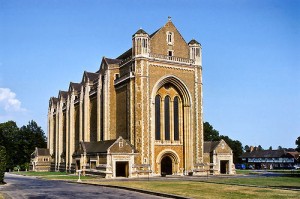
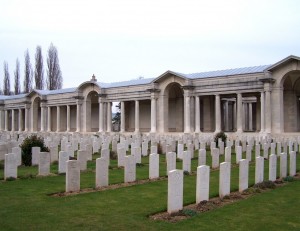
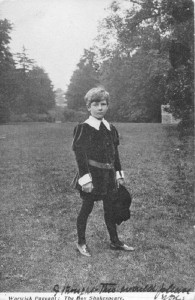

Another wonderful blog about the Warwick pageant and your lost boy. All that research you did paid off!
Lovely blog Sylvia – a great piece of research.
You might consider adding Malcolm Bland to this website -https://livesofthefirstworldwar.org/ . Intended to be a permanent digital memorial, it has been created by the Imperial War Museum (to begin with using the names on the medal card records at the National Archives) & was launched in May with over 4 million names with millions more to come. Anyone can add details to a record. Here is the information page https://livesofthefirstworldwar.org/about .
Malcolm Gordon is already listed from his medal card – https://livesofthefirstworldwar.org/lifestory/381114 but there are no details yet.
Thanks for this information – I haven’t heard of this website but will fill in some details. I have sent off a poppy and donation to Every Man Remembered since young Malcolm died without issue. I very much enjoyed the research – I haven’t really done any genealogical research for decades and it’s quite amazing how easy it is now. I’ve been very careful not to jump to conclusions (remembering Helen Rees’s advice)!